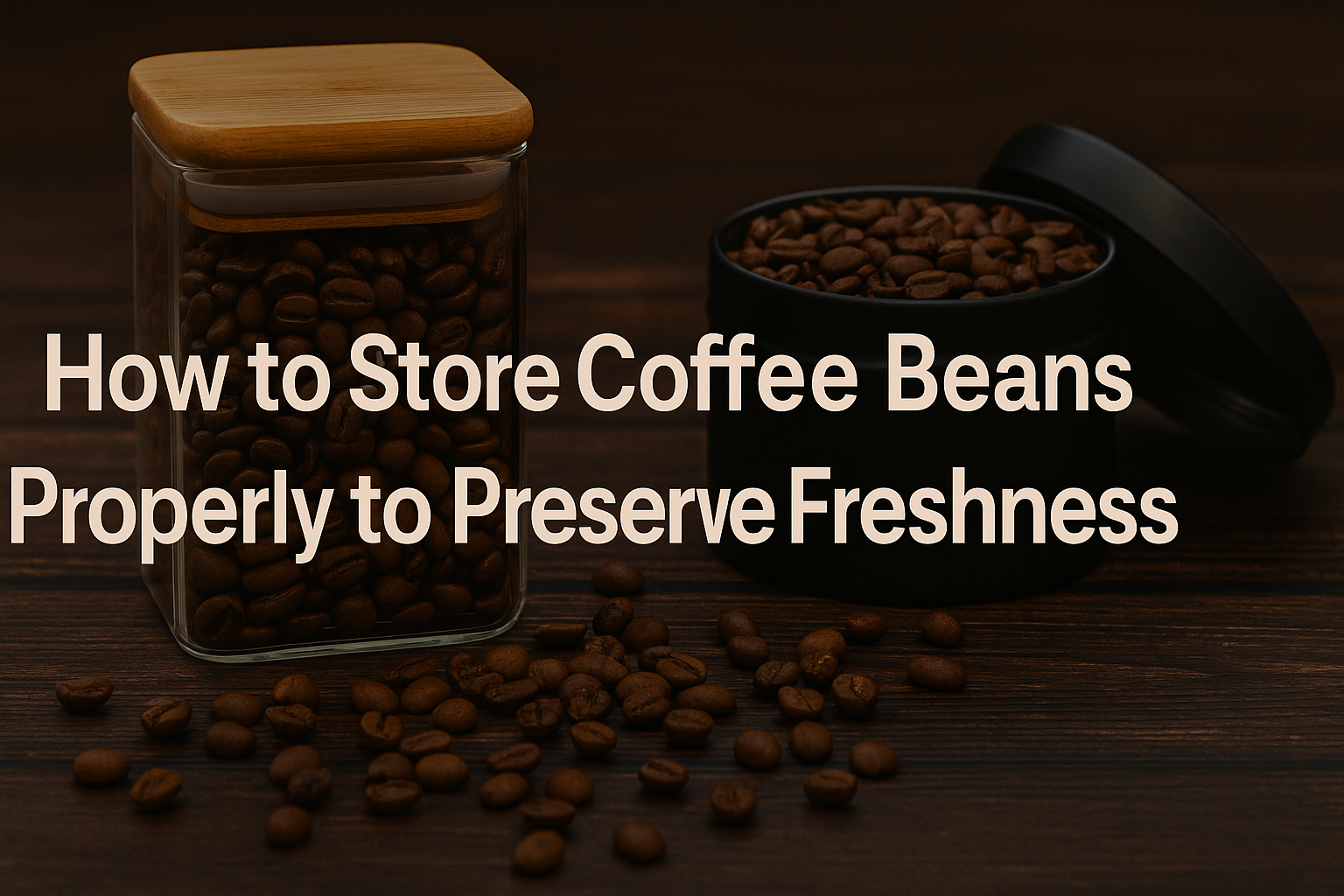Storing coffee beans correctly is essential to maintaining their flavor, aroma, and overall quality. Improper storage can lead to stale, flat, or even rancid coffee. In this guide, we’ll cover the best practices for storing coffee beans at home.
Why Proper Coffee Storage Matters
Freshness is key to a great cup of coffee. Coffee beans are highly sensitive to:
- Oxygen: Causes oxidation, leading to stale flavors.
- Moisture: Can promote mold growth and spoilage.
- Light: Degrades coffee’s aromatic compounds.
- Heat: Speeds up chemical reactions that deteriorate flavor.
By controlling these elements, you can extend the shelf life of your coffee and enjoy better-tasting brews.
Key Principles for Storing Coffee Beans
1. Keep Beans Away from Air
Oxygen is coffee’s worst enemy. Exposure to air causes the beans to oxidize and lose their freshness.
Solution: Store beans in an airtight container with a tight-fitting lid.
2. Avoid Light
Light, especially sunlight, can break down coffee’s flavor compounds.
Solution: Use opaque containers made of ceramic, stainless steel, or UV-blocking materials. Avoid clear glass jars.
3. Control Temperature
Excessive heat speeds up the deterioration of coffee beans.
Solution: Store coffee in a cool, consistent temperature, ideally between 15-25°C (59-77°F). Avoid placing containers near ovens, stoves, or windows.
4. Prevent Moisture Exposure
Moisture can ruin coffee by encouraging mold and altering flavor.
Solution: Keep coffee containers in a dry place and avoid storing beans in the refrigerator where condensation may occur.
Should You Freeze Coffee Beans?
Freezing coffee is a debated topic among coffee professionals.
Pros:
- Can extend freshness for long-term storage.
- Useful for bulk purchases.
Cons:
- Condensation during thawing can damage beans.
- Freezing can alter cell structure, impacting flavor.
Best Practice: If freezing, divide coffee into small, airtight portions to avoid repeated thawing and refreezing. Thaw completely at room temperature before opening.
Ideal Storage Containers
| Type | Pros | Cons |
|---|---|---|
| Ceramic with seal | Opaque, airtight | Can be heavy |
| Stainless steel | Durable, often vacuum-sealed | More expensive |
| Plastic | Lightweight, affordable | May absorb odors |
| Glass | Aesthetic appeal | Allows light unless tinted |
How Long Do Coffee Beans Stay Fresh?
- Whole beans: Best within 2-4 weeks of roasting.
- Ground coffee: Loses freshness within minutes to hours of grinding.
Tip: Buy coffee in small quantities that you can consume within a couple of weeks, and always grind just before brewing.
Signs Your Coffee Has Gone Stale
- Flat or muted aroma.
- Bitter or sour taste.
- Loss of distinctive flavor notes.
If your coffee tastes lifeless, it’s likely past its prime.
Final Thoughts
Proper storage is essential to preserving the integrity and flavor of your coffee beans. By protecting them from air, moisture, heat, and light, you can ensure every cup you brew is as fresh and delicious as possible.
Invest in a quality storage container and practice mindful coffee habits—it makes all the difference between a mediocre and an exceptional coffee experience.
